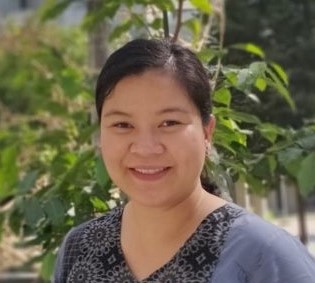Molecular, Cellular and Tissue Engineering
Research
Biomaterials
Bionanotechnology and Biosensing
Computational Modeling and Data Science
Drug Discovery and Delivery
Fluorophores for Diagnostic Imaging
Medicinal chemistry
Molecular, Cellular and Tissue Engineering
Nanotechnology and Sensing
Neural Engineering and Neurotools

Biomedical imaging is one of the most important tool sets we have for understanding biology, physiology, and human disease. Despite the fact that it’s been over 350 years since DIY pioneer Leeuwenhoek first observed single-celled organisms through his homemade microscope, there continues to be a pipeline of new breakthroughs that provide previously unobtainable imaging contrasts, improving our understanding of the natural world. Biomedical imaging spans disciplines, spatial scales, and time scales, and forms the foundation of many scientific endeavors. BU BME biomedical imaging faculty are innovators in new microscopy, spectroscopy, clinical imaging modalities, and imaging probes, with applications spanning a swath as wide as biomedical engineering itself. Biomedical imaging at BU is tightly coupled to the fields of neuroscience, cancer biology, and clinical medicine among others, and faculty collaborate broadly across our institution and beyond.
Biomechanics and Mechanobiology Faculty
Primary Faculty: Christopher Chen, Brianne Connizzo, Edward Damiano, Kenneth R. Lutchen, Hadi T. Nia, Michael L. Smith, Dimitrije Stamenovic, Bela Suki
Research Faculty: Elizabeth Bartolak-Suki, Katie Bentley, Jeroen Eyckmans
Affiliated Faculty: Michael Albro, Elise Morgan, Tommaso Ranzani, Katherine Yanhang Zhang, Xin Zhang
Emeritus: Evan Evans
Affiliated Research Centers
- Biological Design Center (BDC)
- Center for Multiscale and Translational Mechanobiology (CMTM)
- NSF Engineering Research Center in Cellular Metamaterials (Cell-MET)
- Rafik B. Hariri Institute for Computing and Computational Science & Engineering
- Rajen Kilachand Center for Integrated Life Sciences & Engineering
BME Biomechanics and Mechanobiology in the news:

3 BME Professors Elected to IAMBE
Congratulations to BU BME Professors Chris Chen, Joyce Wong and Mark Grinstaff on being elected 2021 Fellows of The International Academy of Medical and Biological Engineering.

Joyce Wong Named President-Elect of AIMBE
Professor Joyce Wong (BME, MSE), has been named president-elect of the American Institute for Medical and Biological Engineering (AIMBE), one of the foremost biomedical engineering societies in the country. Her term as president will begin in 2022. Headquartered in Washington, D.C., and numbering 50,000 members, including the nation’s most accomplished biomedical…

One Small Step For A Mouse: Using Information Science to Understand the Brain
by Allison Kleber How does learning a new skill or process change the physical structure of the brain? Using techniques from data science and high-dimensional statistics, ECE Professors Bobak Nazer and Venkatesh Saligrama, alongside BME Professor Xue Han, aim to find out. Their project, titled “Discovering Changes in Networks: Fundamental Limits, More
Spotting Osteoarthritis When It Starts
Albro and team develop Raman spectroscope to diagnose the degenerative disease By Patrick L. Kennedy With a potentially game-changing application of laser technology to a disease that affects more than 30 million Americans, Michael Albro (ME, MSE, BME) and colleagues have garnered a research grant from the Arthritis Foundation. The team’s new… More

A Tool to Measure Cartilage Health
Professor Michael Albro (ME, MSE, BME) has successfully developed technology that can assess cartilage health and detect early signs of degeneration: the Raman arthroscope. The tool uses light technology and is inserted into a patient’s joint with a hypodermic needle. It is a “game changer” for patients with osteoarthritis.

Three ENG Faculty Named AIMBE Fellows
Three ENG faculty members have been elected to the College of Fellows of the American Institute for Medical and Biological Engineering (AIMBE): Associate Professor Doug Densmore (ECE, BME), Associate Professor Mo Khalil (BME), and Professor Katherine Zhang (ME, BME, MSE).
